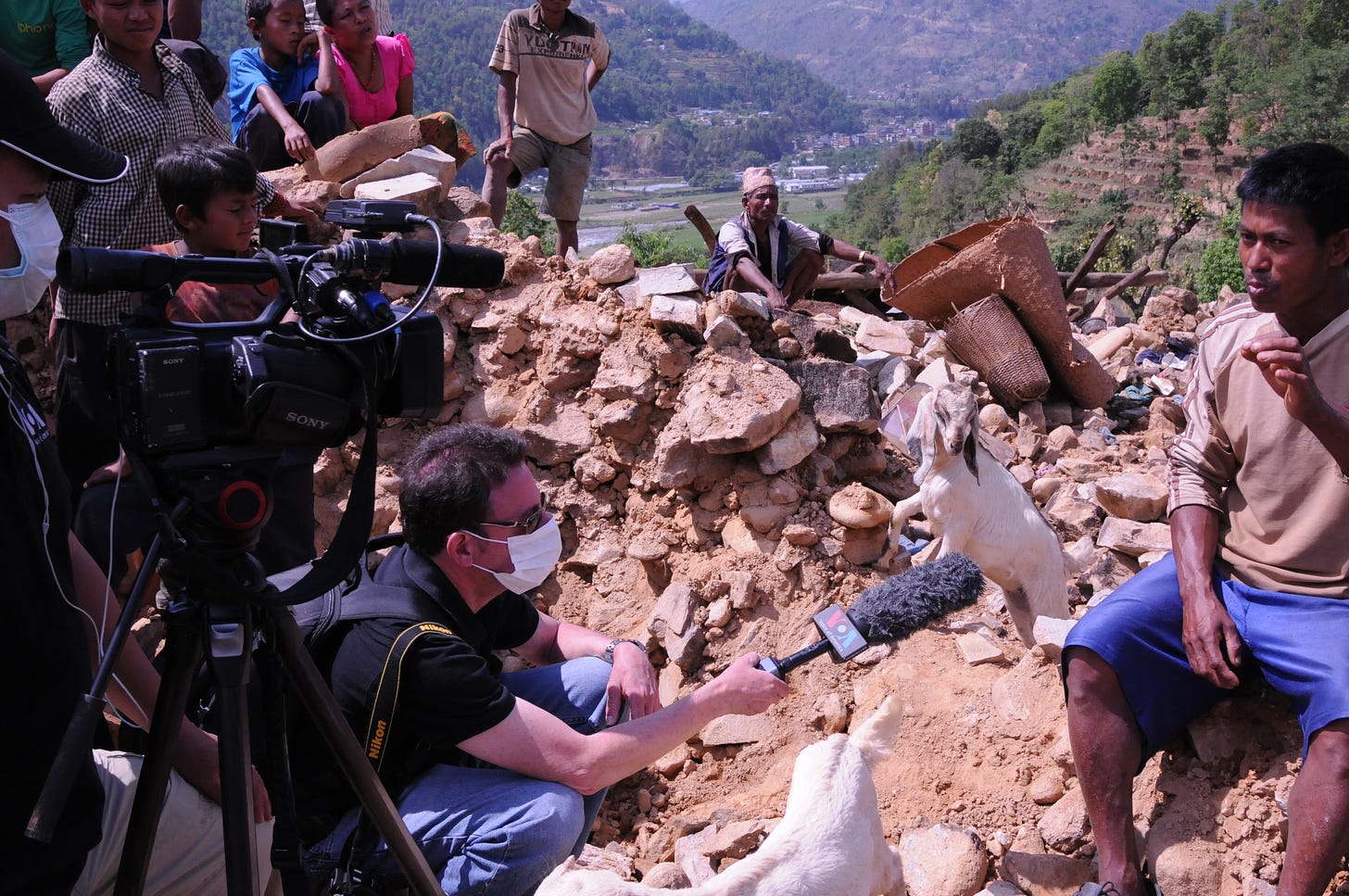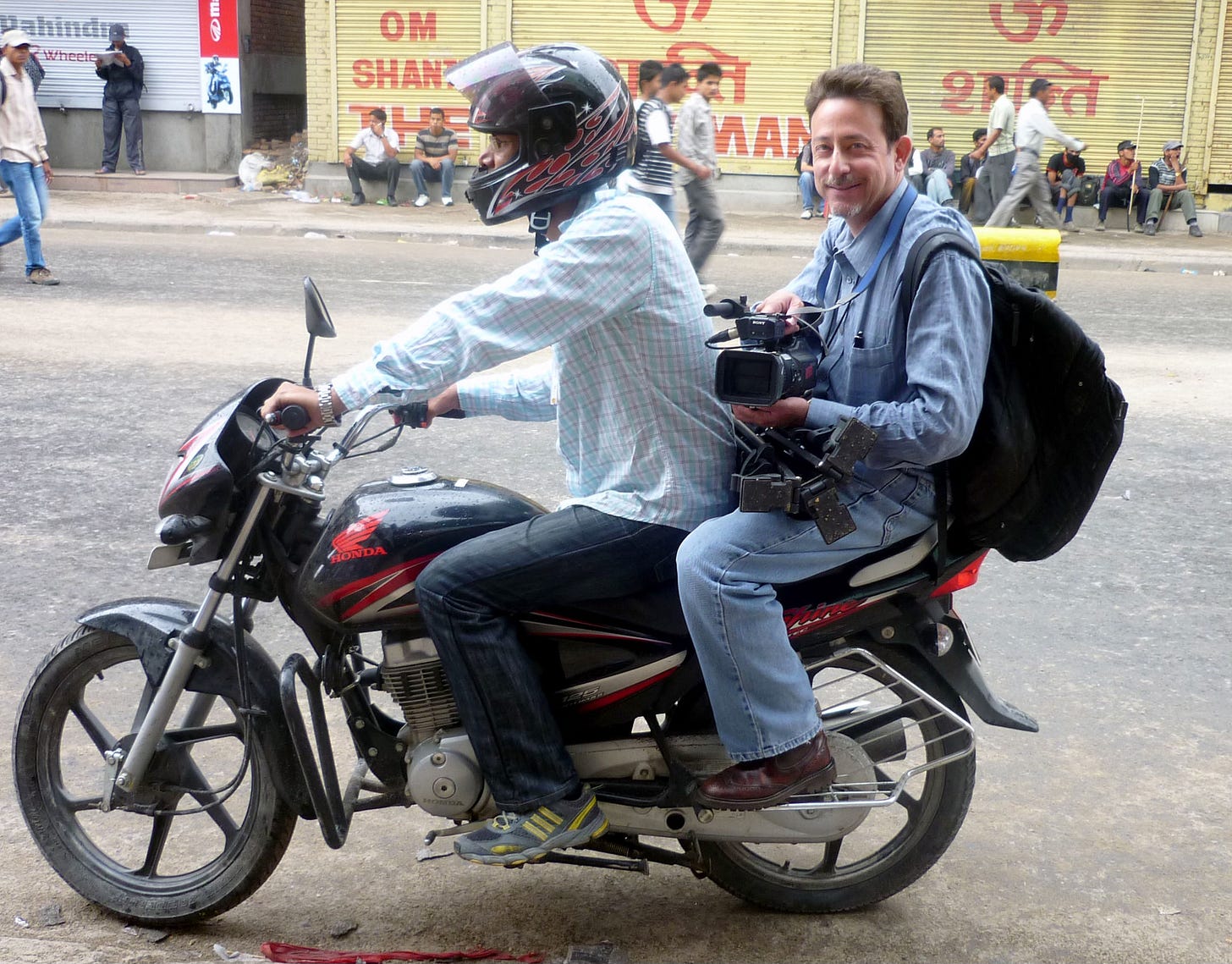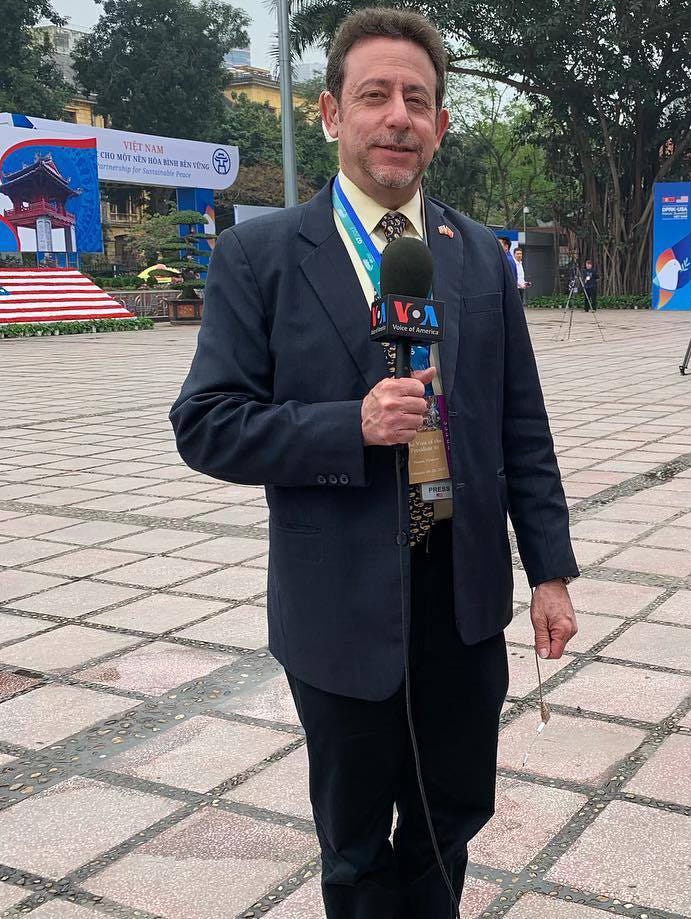My full-time service with the Voice of America, from contract reporter in Tokyo, then as a bureau chief/correspondent across Asia and finally in Washington at the State Department, White House and across the country, totals 20+ years. During several momentous decades in dozens of countries, I wrote thousands of dispatches, averaged hundreds of radio reports annually during the peak years and generated a video library of TV reports. All of this was accomplished in concert with excellent editors and the enthusiastic support of management.
From my years in Asia until 2025, VOA editors and managers ensured that my journalistic endeavors met the mission, with the emphasis on accuracy and objectivity. Sometimes we had exclusives and even scooped the wire services on significant developments, but speed was never the priority. All but two VOA directors, from the mid-2000’s until now, firmly stood by us.
The work required distilling complex topics with numerous nuances into reports easily digestible by international audiences, quickly translatable into dozens of languages and comprehensible regardless of the medium in which they were consumed – on web sites, phone apps, satellite TV and sometimes still on staticky shortwave radio. Backed by a charter and a firewall (both laws) we were not to bow to any political pressure, foreign or domestic, and above all else be fair and balanced.
In the dozens of countries from which I reported (mainly in Asia, but also Eastern Europe, Africa and Latin America), VOA was a household acronym. Much to my surprise that held true in encounters with G-20 leaders at glitzy summits, villagers in rural Burma and soldiers in North Korea.
My experience was not unique, as I learned from conversations with retired VOA correspondents who reported some of the momentous events of the latter half of the 20th century. They were at the mercy of analog technology, carrying equipment much heavier than 21st century digital tools, unable to turn audio and video into data transmitted across the world at rapid speed and minimal cost. Whenever I thought my globe-trotting job was onerous, I would recall how challenging it was, as I witnessed at the start of my career, utilizing reel-to-reel tape recorders with big batteries, operating telex terminals and -- when there was no alternative -- saying a little prayer before placing film and tape into the hands of a hopefully reliable international courier.
As I recounted in the semi-autobiographical Behind the White House Curtain: A Senior Journalist’s Story of Covering the President and Why It Matters, my association with the Voice of America began as an elementary school student with an on-air shortwave announcement requesting post cards to enter a listeners’ contest. The reply in a polite form letter explained that as an American I was ineligible as VOA was, by law, solely an external broadcasting service. This both disappointed and intrigued me.
Over the years I learned more about the Voice of America and when, decades later, I first heard one of my own freelance reports bouncing back over VOA’s airwaves I felt like I’d achieved something significant. And when given the chance to become a full-fledged VOA correspondent (and as a foreign service officer of a U.S. government agency, yet independent of executive branch editorial interference) it was a dream come true, barely imaginable to that young kid fiddling with a radio in his grandmother’s kitchen.
I filed my final story for VOA on February 20 of this year – eight days before I was placed on paid administrative leave pending completion of a VOA investigation of my social media activities. That followed a recent fizzled USAGM investigation into alleged “speculative” and “analytical” comments I had made in November on two VOA programs (one on radio, one on TV) about the appointees of the incoming administration.
Internal sources confirmed that I was being targeted for ostensibly political reasons, along with my successor as White House bureau chief, Patsy Widakuswara, who is one of our foremost reporters with an unimpeachable journalistic reputation. You might have caught us both recently in a 60 Minutes segment about the silencing of VOA.
VOA’s upper management, in coordination with USAGM’s human relations department, decided it would be prudent to neutralize both of us (who were whistleblowers in the final months of the first Trump administration) to appease the incoming political overseers of the second Trump administration. That strategy obviously failed as all of VOA’s staff was DOGE’d two weeks later with USAGM’s “special advisor,” Kari Lake, oscillating in public statements. On some days Lake has stated that VOA needed to be pared down to a mysterious “statutory minimum.” On other days VOA, according to the former Arizona TV broadcaster, is a rotten fish and cannot be salvaged.
February’s anticipatory compliance exhibited by VOA upper management may have been taken as encouragement that it would not resist whatever USAGM had in store for them in March. While our leadership was initially paralyzed by USAGM suddenly silencing VOA after 83 years of non-stop broadcasting, I quickly joined Patsy and a few of our other emboldened colleagues in speaking out and taking legal action.
The International Broadcasting Act stipulates that the USAGM chief executive officer must be appointed by the president and confirmed by the Senate. Lake, who Trump had selected to run VOA, appointed Victor Morales as a figurehead acting CEO, although it is not clear under what authority she did so. The appointment or removal of heads of USAGM networks, including VOA, requires approval by a majority vote of the International Broadcasting Advisory Board (IBAB), a bipartisan body composed of members appointed by the president with Senate confirmation, along with the secretary of state serving ex officio. Trump dismantled the IBAB. His authority to do that is also in dispute. The incumbent VOA director, Michael Abramowitz, is the lead plaintiff in a second lawsuit against Lake.
Widakuswara is the lead plaintiff in the initial lawsuit against USAGM. We’ve scored both successes and setback in an extended legal process to try to turn back the clock to March 14. Despite today’s setback in federal court, we will continue to argue that not only is the chain-sawing of VOA by the executive branch illegal, but there is also a First Amendment argument that VOA was muted because it could not be converted, under present law, into an administration mouthpiece.
Nearly everyone at the Voice of America now faces the ax wielded by the hyper-politicized USAGM, which has cast aspersions on VOA’s journalists, collectively labeling us biased radicals and disloyal security risks, both echoes of McCarthyism which we heard repeated during the tenure of Trump’s first-term head of USAGM, Michael Pack. During his seven-month tenure, Pack – according to a federal judge, Office of Special Counsel and Inspector General findings acted unlawfully, in part, by improperly suspending security clearances, altering contracts and wasting public funds by hiring an outside law firm to investigate USAGM and VOA staff members, including me.
That is one reason, amid what sometimes feels like déjà vu, I will continue to publicly support my VOA colleagues in every way possible in the days, weeks and months ahead. History and the law show we are on the right side.
Secure in that knowledge, I will retire from VOA and the Foreign Service at the end of June. I will take a new full-time role advocating for reporters and the First Amendment, as well as working on journalism innovations at a challenging time for our profession and nation.
I expect to share details about this new endeavor on Friday. Stay tuned.










Steve….keep fighting the good fight…truth wins in the long run…you have all of us with you👍
Being on the front lines of a challenge is nothing new to you, Steve. There's so much more riding on this than just whether VOA continues to broadcast or not, and we're grateful that you, Patsy, and others have committed yourselves to this fight. 73 es rock on!